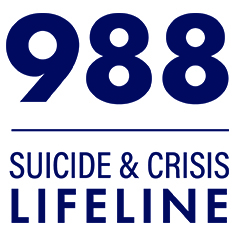This webinar provided an overview of the Trevor Ally Trainings, which help adults who work with youth learn about lesbian, gay, bisexual, transgender, queer and questioning young people, the specific challenges they face, and how to become an ally by knowing valuable resources and strategies. The session offered guidance on implementing this training, as well as online tools and curricula that are specific to LGBTQ youth which have been listed in the Best Practice Registry for Suicide Prevention.
Event & Training Types: SAMHSA Webinar
Trevor Project’s Trevor CARE Trainings
This webinar provided an overview of the Trevor CARE Training, which is a suicide prevention gatekeeper training that specifically addresses the unique risk and protective factors for suicidal behavior among LGBTQ youth and young adults. The session walked through the training elements, while also highlighting how it can build on the Trevor Ally Training or other LGBTQ cultural competency trainings.
AI/AN Suicide Prevention Programs – Lessons Learned with White Mountain Apache & Johns Hopkins University
This webinar focused on sharing lessons learned related to suicide prevention efforts in American Indian communities. The two discussants, Novalene Goklish and Mary Cwik, are currently leading the third round of SAMHSA Garrett Lee Smith Suicide Prevention funding for the White Mountain Apache and Johns Hopkins partnership. They imparted practical information learned from this long-standing and award-winning suicide prevention program on the following topics:
- How to get Tribal Council buy-in and approvals including resolutions?
- How to form and maintain an active Elder’s council?
- How to deal with key stakeholder turnover in the community including elections? and
- How to best take care of your grant staff and the community after a suicide death(s)?
Lessons Learned from the White Mountain Apache Surveillance System
Novalene Goklish, Rosemarie Suttle, and Mary Cwik presented an overview of the award-winning, community-based White Mountain Apache Surveillance System. The presentation covered the: 1) history and development of the system, 2) data collection and follow-up procedures, 3) knowledge gained from the data, and 4) implications for suicide prevention.
Presenters talked about the strengths and challenges of mandated surveillance and imparted practical information about feasibility and implementation issues. Participants had time to ask questions about how to gain support for local data collection, and possibly surveillance, in their own communities.
State/Tribal Youth RFA (SM-14-008)
This is a pre-application technical assistance webinar for the State-Sponsored Youth Suicide Prevention and Early Intervention Cooperative Agreements (Short Title: State/Tribal Youth Suicide Prevention Cooperative Agreements) RFA SM-14-008.
SAMHSA Campus Suicide Prevention RFA No. SM-14-014
Pre-Application Technical Assistance Webinar
This is a pre-application technical assistance webinar for the PPHF-2014 Campus Suicide Prevention Grant (Short Title: PPHF 2014) RFA SM-14-014.
Cooperative Agreements for Tribal Behavioral Health
This is a pre-application technical assistance webinar for the Cooperative Agreements for Tribal Behavioral Health (Short Title: Native Connections) RFA SM-14-013.
Campus Suicide Prevention Grant: Pre-Application RFA Webinar for Applicants
This is a pre-application technical assistance webinar for the PPHF-2014 Campus Suicide Prevention Grant (Short Title: PPHF 2014) RFA SM-14-014.
SAMHSA National Strategy Grant: Pre-Application RFA Webinar for Applicants
This is a pre-application technical assistance webinar for the PPHF 2014-Cooperative Agreements to Implement the National Strategy for Suicide Prevention (short title: National Strategy Grants). RFA SM-14-016.
A Center without Walls: The CDC-funded Injury Control Research Center dedicated to Suicide Prevention
In this podcast, Dr. Caine outlines the background and philosophy for the ICRC-S and exciting new directions for suicide and suicide prevention research that is likely to have practical impacts for the field of suicide prevention.
Event Presenter(s)
Eric Caine, MD, Chair and John Romano Professor, Department of Psychiatry, University of Rochester Medical Center, and co-PI of the ICRC-S
